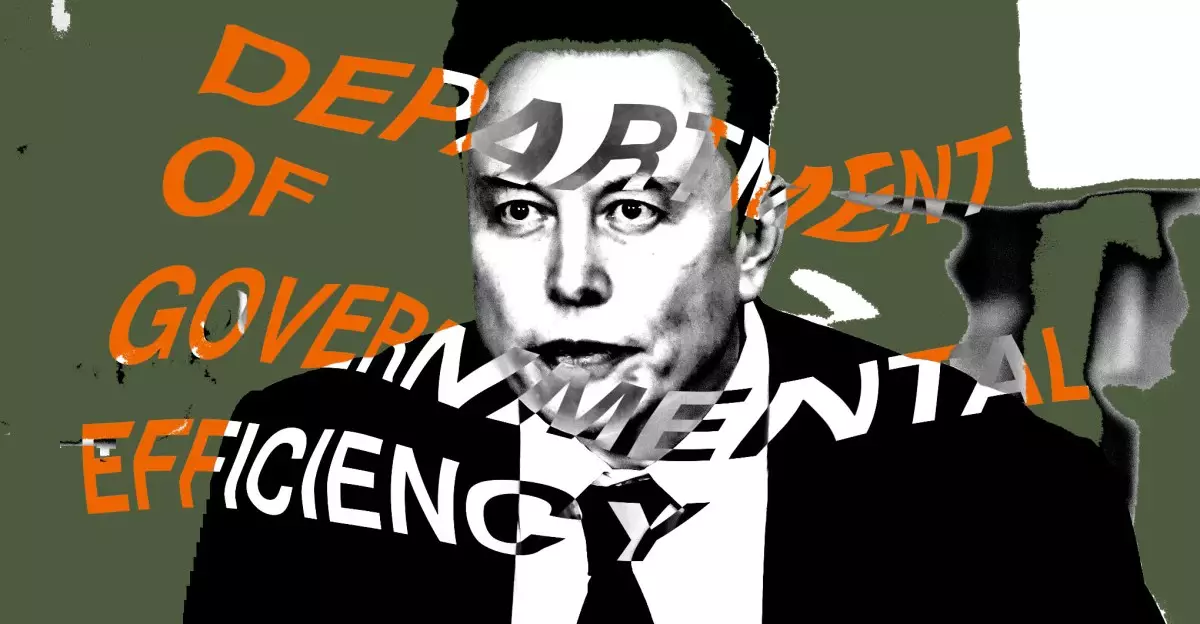In a surprising turn of events, prominent advocacy group Public Citizen has filed a lawsuit against the U.S. Treasury Department, demanding that a federal court intervene to prevent Elon Musk and his associates from accessing government payment systems. The suit hinges on allegations that this access is not only unwarranted but may pose significant risks to the privacy and security of millions of Americans. As this legal battle unfolds, it raises crucial questions about corporate influence on government services and the safeguarding of sensitive personal data.
The controversy began to gain traction when it was reported that a special group, humorously named the “Department of Government Efficiency” (DOGE), allegedly led by Musk, had been granted unprecedented access to federal payment systems. This access reportedly includes sensitive information such as Social Security numbers—a claim that has heightened concerns about privacy breaches. The lawsuit filed in Washington, D.C. federal court, on behalf of the Alliance for Retired Americans, the American Federation of Government Employees, and the Service Employees International Union, argues that this move violates the Privacy Act of 1974, which seeks to protect individual privacy from unnecessary governmental intrusion.
Public Citizen’s complaint outlines a clear assertion: citizens who engage with federal services should not have their personal information disclosed to private individuals like Musk or members of DOGE. As noted in the suit, the Treasury Department under Secretary Scott Bessent may have overstepped its boundaries, creating an alarming precedent for governmental accountability and data privacy.
Lawmakers have been quick to respond to this situation. Senators Ron Wyden and Elizabeth Warren have voiced their concerns, urging Secretary Bessent to clarify the extent of Musk’s access to these critical systems. Wyden, ranking member of the Senate Committee on Finance, expressed his apprehension about the potential ramifications of political interference in vital payment systems, warning that any manipulative actions risk destabilizing the economic foundation of the country.
Warren’s inquiries further underscore the anxiety surrounding data protection and the safeguards—or lack thereof—put in place to mitigate abuse. Her request for a prompt response from Bessent reflects an urgent desire for transparency regarding the access granted to DOGE, as well as the mechanisms instituted to protect sensitive information.
The implications of this case extend beyond mere privacy concerns. Legal experts predict that the situation could open the floodgates for further scrutiny of Musk’s operations, suggesting that he may face an array of lawsuits stemming from potential violations in federal regulations. Should public funds be jeopardized due to the actions of DOGE, affected organizations could seek restitution through legal channels. It’s a precarious position that invites challenges not just from advocacy groups but also from entities whose operations are adversely impacted.
National security lawyer Bradley Moss posits that the current administration appears to be testing the limits of its authority under the guise of operational efficiency. This behavior raises ethical and legal questions regarding the boundaries of executive power and the accountability mechanisms in place to curtail potential overreach.
As the lawsuit progresses, it serves as an important reminder of the need for constant vigilance against excessive corporate influence in governance and the preservation of citizens’ privacy rights. The case illuminates the complex interplay between private interests and public accountability in an era where technology and government are increasingly intertwined. With substantial public concern over the protection of personal data, this situation necessitates increased scrutiny of how access to sensitive systems is granted and monitored. As we wait for outcomes and responses from Secretary Bessent and lawmakers, one thing remains clear—citizen trust in government hinges upon safeguarding their data against unwarranted intrusions, regardless of who is at the helm.

